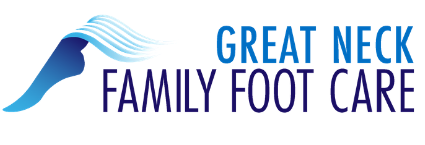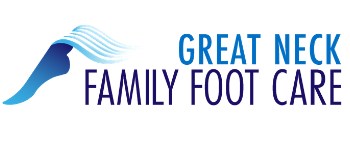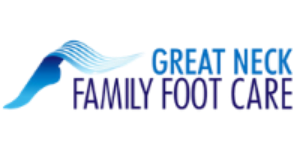25 May Runners Beware: Common Foot Complaints
Running is definitely a great way to get and stay in shape, but at Great Neck Family Foot Care we see many runners for a variety of complaints. Some foot disorders associated with running can be prevented by wearing well-fitted shoes specifically designed for running. Other foot problems just come with the territory. Among the ones we see more often are:
Ingrown Toenail—this may surprise you but toenail problems occur frequently for runners because of the constant pounding of the toes, particularly the big toe, against the front of the shoe. Discolored nails are common and usually harmless but an ingrown nail can quickly sideline you. When a nail starts to grow into the skin, it will be painful and look red and swollen. Once the nail punctures the skin, an infection can develop. If you notice these symptoms, you can try soaking the affected foot in warm water and gently massaging the nail. If this doesn’t work or you notice any kind of pus or drainage (a sign of infection), call a podiatrist at once.
Plantar Fasciitis—an inflammation of the plantar fascia, the long band of tissue that stretches along the bottom of your foot from your heel to your toes, can happen from overuse or if you have flatfeet or another mechanical issue that puts pressure on the plantar fascia. Our board certified foot and ankle surgeons, Dr. Alec Hochstein and Dr. Diana Gagliano will evaluate the pain in your arch and heel and then prescribe the appropriate treatment. In some cases, a little rest and icing will take care of the pain but long term solutions may include orthotic inserts for your shoes and stretching exercises as part of your warm up.
Achilles Tendonitis—this condition most often happens if you increase your running speed or distance too quickly or if you spend an excessive amount of time running hills or stairs. Achilles tendonitis can cause pain, swelling, aching and stiffness in the calf and back of the lower leg. You may need to switch to a low-impact sport for a while to give your tendon a chance to heal. Braces and orthotics may be suggested to prevent Achilles tendonitis in the future.
Blisters—a seemingly minor concern but blisters can be painful and also become infected if not treated properly. If a blister forms on your foot, cover it with a bandage. Don’t pop it but if it pops on its own, apply an anti-bacterial ointment and cover with a bandage until it is healed. Avoid blisters by replacing running shoes when they are worn out and wearing socks that don’t bunch up inside your shoes. If a blister develops that appears to be filled with pus or blood, call the foot doctor.
If you have more questions about how to keep your feet healthy while you get fit, contact our Great Neck office for an appointment.





Sorry, the comment form is closed at this time.